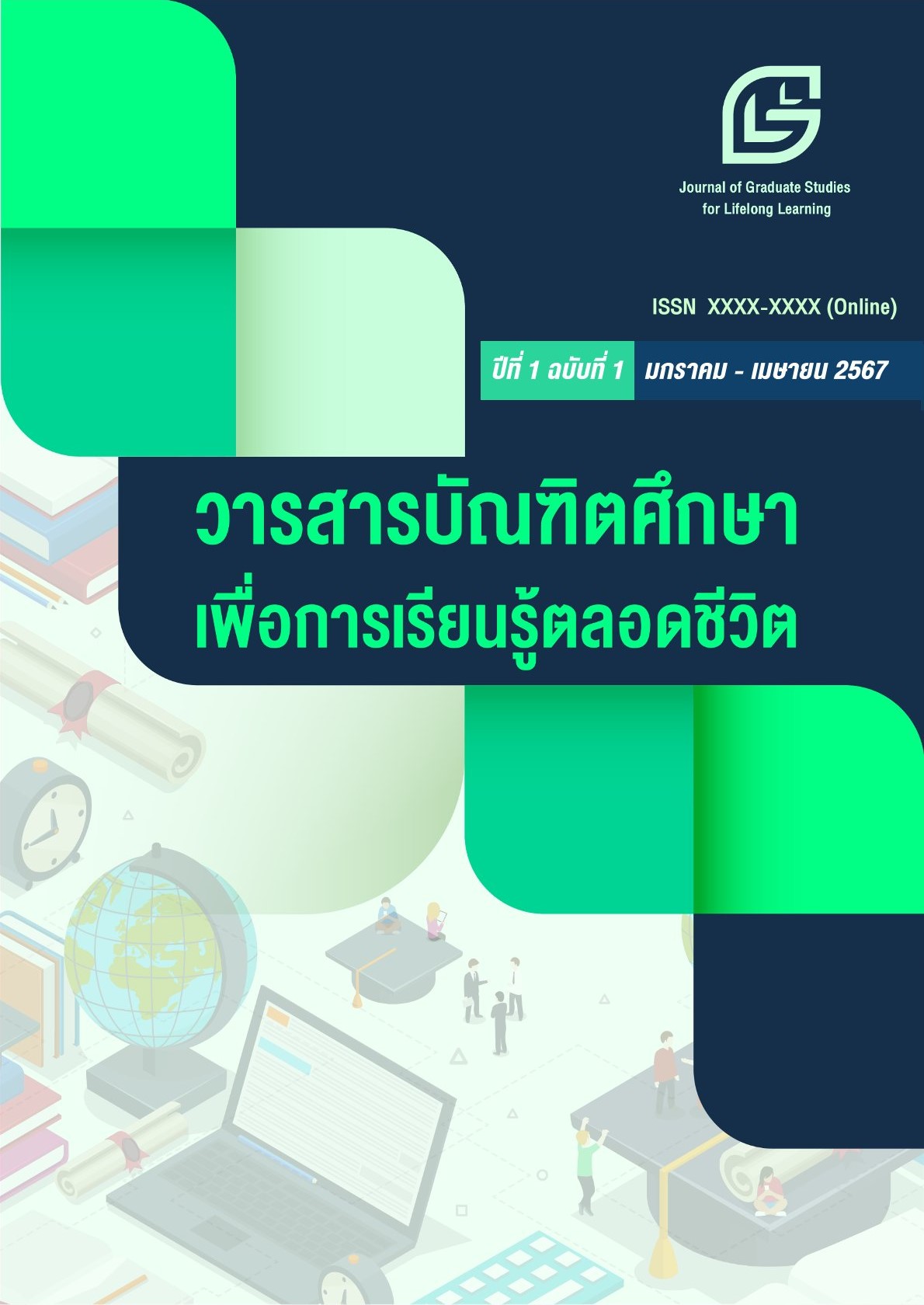The Study of Beauty Queen Epithets Development in Beauty Pageant Facebook Fan pages among Thai Fans
Main Article Content
Abstract
An epithet is a nickname used to address or refer to a person without using their real name. It may be a term known within a specific group, often informally used and may only last for a certain period. Nicknames, in this context, also serve as a form of historical documentation that conveys stories or events in society through language. This research is qualitative that utilizes document research methods aiming to study the linguistic strategies and meanings of Beauty Queen epithets coined by Thai beauty pageant on Facebook fan pages during beauty contests. The research collected 20 Beauty Queen epithets and studied information, meanings, and usage by observing the Beauty Queen epithets used by Thai beauty pageant in beauty pageant groups with more than five thousand members between the years 2020-2023. The theoretical framework is based on three elements used in naming the Beauty Queen epithets consisted of the application of the Beauty Queen epithets’ names, the application of the Beauty Queen epithets’ behaviors, and the application of the Beauty Queen epithets’ unique characteristics. Mostly they are often the act of creating epithets for easier identification, but they can be understood only within a specific group. Therefore, it is necessary to study the origin of the Beauty Queen background to understand its meaning.
Article Details

This work is licensed under a Creative Commons Attribution-NonCommercial-NoDerivatives 4.0 International License.
References
ทรงยศ บัวเผื่อน และนนทชา คัยนันทน์. (2562). การวิเคราะห์สมญานามที่สื่อมวลชนตั้งให้กับคนกีฬา. วารสารมหาวิทยาลัยราชภัฏรำไพพรรณี, 2(1), 1-32.
เนตรทราย มณีโชติ. (2544). สมญานามในข่าวและรายการกีฬาทางสื่อมวลชน [วิทยานิพนธ์ปริญญามหาบัณฑิต ไม่ได้ตีพิมพ์]. จุฬาลงกรณ์มหาวิทยาลัย.
พิมพิไล บุญจง. (2564, 27 กรกฎาคม). หลายแง่มุมทั้งตัวตน ชีวิต ความรักของ Amanda Obdam. lofficielthailand, https://lofficielthailand.com/2021/07/amanda-obdam-opens-up/.
โรม บุนนาค. (2560, 23 มกราคม). ชื่อฝรั่งที่คนไทยเรียกให้สะดวกลิ้น! เจ้าของชื่อยังต้องจำว่านี่คือชื่อของไอเอง!!. mgronline, https://mgronline.com/onlinesection/detail/9600000007483.
ศิตา เยี่ยมขันติถาวร, อรรถพล ม่วงสวัสดิ์ และธนะโรจน์ สิทธาธีระวัฒน์. (2566). การศึกษาการใช้สแลงของแฟนนางงามไทยในเฟซบุ๊กแฟนเพจการประกวดนางงาม. วารสารวิจัยราชภัฏพระนคร สาขามนุษยศาสตร์และสังคมศาสตร์, 18(2), 156-171.
ศิริพร ภักดีผาสุข. (2549). สมญานามนักการเมือง: การละเล่นทางภาษาเพื่อวิจารณ์การเมืองไทยของสื่อมวลชน. ใน เจิมศักดิ์ ปิ่นทอง, และอมรา ประสิทธิ์รัฐสินธุ์ (บรรณาธิการ), รู้ทันภาษารู้ทันการเมือง (น. 73-107). ขอคิดด้วยคน.
สุเมธ ชัยไธสง. (2563). การสื่อสารอัตลักษณ์ทางเพศของแฟนนางงาม: ศึกษากรณีแฟนชายรักชายต่อการประกวดมิสยูนิเวิร์สไทยแลนด์. จันทรเกษมสาร, 26(2), 264-278.
สุเมธ ชัยไธสง และสมสุข หินวิมาน. (2563). พัฒนาการการรวมกลุ่มของแฟนคลับชายรักชายต่อการประกวดนางงาม: จากนางสาวสยามสู่มิสยูนิเวิร์สไทยแลนด์. MFU Connexion: Journal of Humanities and Social Sciences, 9(1), 123-148.
สุวรรณา งามเหลือ. (2439). การศึกษาสมญานามในหนังสือพิมพ์รายวันไทย [วิทยานิพนธ์ปริญญามหาบัณฑิต ไม่ได้ตีพิมพ์]. จุฬาลงกรณ์มหาวิทยาลัย.
Nguyen Thi Thuy Chaua, พัชรินทร์ อนันต์ศิริวัฒน์ และสุภาพร คงศิริรัตน์. (2017). วัฒนธรรมที่สะท้อนผ่านคำเรียกบุคคลในภาษาไทยและภาษาเวียดนาม. Journal of Mekong Societies, 13(3), 77-99.


